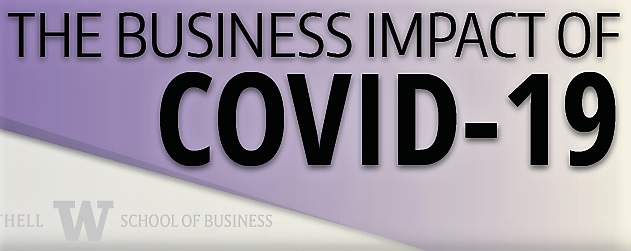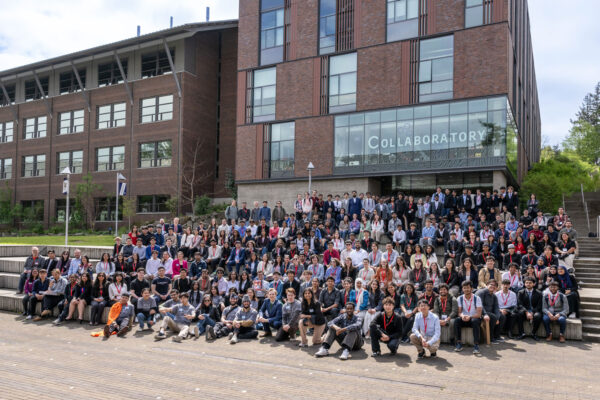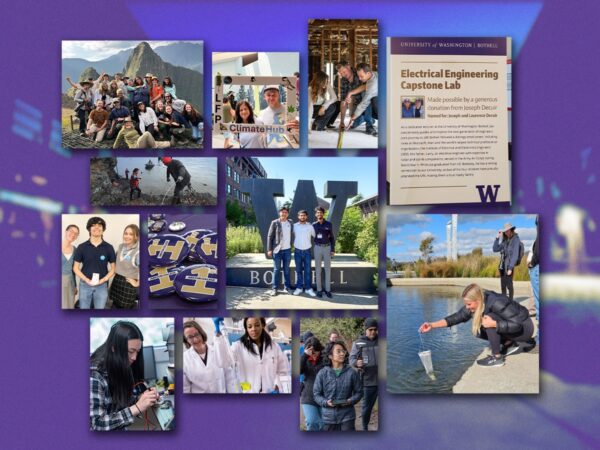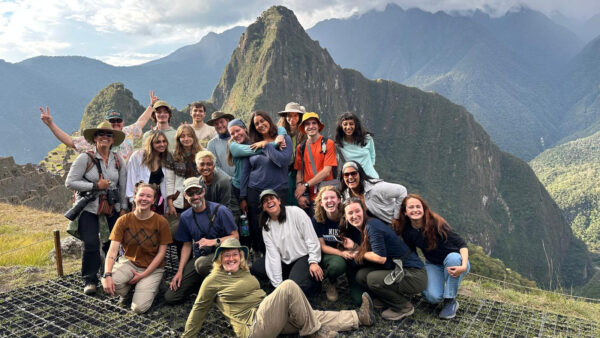
As the coronavirus pandemic disrupts the economy, businesses are learning to adapt even as business leaders look for new opportunities. The University of Washington Bothell’s School of Business is tracking these and other trends with a Business Impact of COVID-19 teleconference series.
More than 400 registrants have taken part in the first three sessions.
For the fourth presentation in the series, from 4 to 5:30 p.m. Tuesday, May 26, the school is hosting a panel of technology executives to talk about the implications of the pandemic on technology. The series is free and available to anyone: alumni, faculty, staff, students, external partners and other interested parties. The link is provided on registration.
The sessions are hosted by School of Business Dean and Professor Sandeep Krishnamurthy. The May 26 technology panel will include Aseem Datar, general manager, Microsoft Cloud; Rob Stone, vice president and general manager, Operations, Zones; David Thomson, chief information officer, Pineapple Hospitality; Christy Long, assistant vice chancellor and chief information officer, UW Bothell; TR Srikanth, chief information officer and senior vice president of information technology, Banfield Pet Hospital; and Travis Muhlestein, head of global product development – game software experiences, NVIDIA.
Insights from entrepreneurs
More than 50 participants joined the April 29 Business Impact of COVID-19 teleconference to hear from a panel of six entrepreneurs. They said that remote operations will likely continue for many businesses even after people are no longer required to stay at home because of the pandemic.
Employees working remotely are finding new ways to get the job done, for example, ensuring that the growing number of online shoppers are satisfied.
This dynamic means that trusted, self-motivated employees are more valuable than ever. Meanwhile, with information in the cloud and with offices and stores underused, commercial real estate will likely be cheaper in coming months.
The six entrepreneurs are all graduates of UW Bothell’s School of Business. Each talked about how the pandemic has affected their business, how they are adapting and what they expect in the future.
Meet the panelists
- Dustin Goss (Business Administration ’02) is president of Makota Co. He has started multiple businesses as varied as winter sports gloves, wood paneling and children’s books. Goss is a member of the School of Business Alumni Advisory Board.
- Danielle Lothrop (MBA ’17) is co-owner of Toggle’s Bottle Shop, a craft beer and bottle shop in Everett, Washington, and helps develop other businesses in Everett. Lothrop is also a member of the school’s advisory board.
- Tadashi Shiga (Economics ’98) is executive director, land division, at Realogics Sotheby’s International Realty. He also owns a green-building certification service he started during the Great Recession.
- Jennifer Olsen (MBA ’05) is CEO and executive coach at Resourceful. She focuses her consulting work on nonprofits and businesses that are trying to effect change in the world.
- Subodh Parulekar (MBA ’07) is co-founder and CEO of Afourtech. He heads a software services company with employees in the United States and India.
- Jeff Barnes (MBA ’11) is CEO of Angel Investors Network. He has worked as a financial adviser and in startup and corporate positions. Barnes also now helps other entrepreneurs build their businesses.
Quotes of note
Each speaker gave a presentation and participated in a question-and-answer period. Together, the alumni panelists provided a real-world, real-time report on some of the impacts the pandemic is having in the business community. Everyone had insights to share, including these stand-out quotes:
“The lifeblood of any business is cash. And if we don’t have that oxygen, that will drive you out of business.”
“I don’t see huge growth for us. It’s more survival mode than anything.”
“Chaos brings opportunity. The larger the chaos, the larger the opportunity.”
“The key is building for resiliency.”
“Go where there is need. There are plants in the desert.”
“The shorter the time you can go from ‘woe is me’ to ‘get back on the horse,’ the better your life will be.”
“Double down on what works.”
“Online tools and collaboration will be the new normal.”
“Independent employees who don’t need micromanaging are crucial moving forward.”
“Share the load as a team.”
Krishnamurthy said he was proud of the alumni and their resilience in these difficult times.
He also expressed hope that the economy will begin a strong recovery this year. “This will not last forever,” said Krishnamurthy. “Fall will be better, and hopefully there will be a holiday shopping season that will help save America.”


